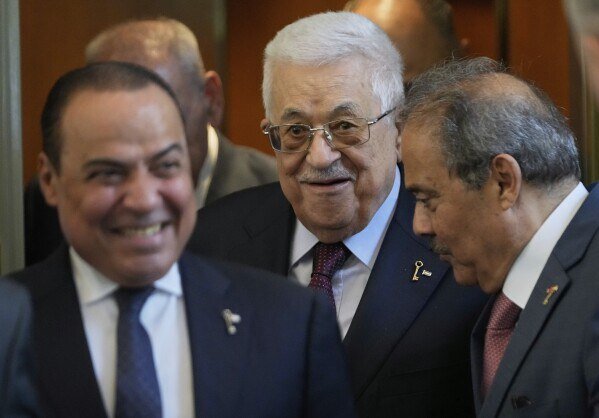South Lebanon – While Palestinian authorities’ President Mahmoud Abbas’ visit to Lebanon is not worth analytical or serious consideration, the treatment received from Lebanon’s anti-resistance camps was extremely ridiculous.
It was not surprising that Foreign Minister Yousef Raj (or Lebanese military minister) opened his weapons to welcome the unpopular Abbas.
Government sources told Agence France-Presse that a specific schedule has been agreed to begin the process of disarming Palestinians from Lebanese camps in mid-June.
The weapons to be handed over to Palestinian refugee camps in Beirut, particularly the camps in Shatira and Ma Elias, were reportedly cooperated. The agreement coincided with coordination with other Palestinian factions, primarily Hamas.
In fact, the Palestinian weapons in the camp have not been effective since the 1980s, when the Fatah movement formed an alliance with the Lebanese army and Pierre Rizku (Lebanese army leaders appeared as political and financial advisors to the movement.
It should be noted that Rizku’s infamous name is associated with the massacre of Sabra and Shatira. He also played a major role in the illegal arms trade of forces and their sectarian projects during the Civil War.
Until the time of writing, Hamas had not made an official comment on the handover of weapons. However, sources close to Hamas have been unhappy with Abbas’ unilateral decision and unilateral communication with the Lebanese government in an interview with the Tehran Times.
Sources expressed disappointment at the way disarmament is being carried out and argued the need to ensure that Palestinian refugees are recognized for their full civil and social rights.
The worst misfortune that makes it easy to laugh is that Samir Giagea, the head of the Lebanese military, described Abbas as “the Arab president who always had Lebanon’s heart in his heart, establishes Lebanon-Palestinian relations and takes the right steps.”
Geagea added, “Abbas’s successive statements – highlighting the need for all Palestinians to comply with Lebanon’s sovereignty and the laws of the Lebanese state, and the impervious nature of military action from Lebanon.
For that part, under the auspices of Prime Minister Norwaf Salam, the so-called Honey Far Academy for Dialogue and Peace honored Abbas, who was awarded the Perthmaker Award.
The ceremony was attended by former President Amin Jemaiel (who signed the regularization agreement with Israel on May 17) and Saudi ambassador Walid Buhari, along with various voices of anti-resistance political figures.
As mentioned earlier, Mahmoud Abbas’s visit to Lebanon is at the request of the US and Saudi Arabia and is not worthy of serious consideration. Because the Palestinians themselves know their subordinateship to Israel.
Abbas’ mission is to suppress the Palestinian people and to suppress the Palestinian resistance movement.
Meanwhile, anti-resistance media have sought to treat Abbas’ visit as a major strategic event, which clearly falls within the framework of a new occupational project that the Empire Turhampland is attempting to impose on West Asia.
In this context, many Palestinian territorial leaders left the Syrian capital Damascus after being pressured by de facto authorities. Their characteristics were also confiscated, according to Agence France-Presse. Properties belonging to faction, such as private homes, headquarters, automobiles, and training camps, have also been confiscated.
Among these individuals is Khaled Ghibril, the son of the founder of the Popular Front for the Liberation of Palestine – General Command. Khaled Abdul Majeed, executive director of Syria’s popular Struggle Front. Ziad Al-Saghir, Executive Director of the Fataha Al Intifada Movement.
“These factions have handed over all weapons from their headquarters or executives,” Palestinian sources said.
Another Palestinian source in Damascus told AFP: “We feel we are unwelcome guests.
It is noteworthy that during a meeting in Riyadh on May 15, US President Donald Trump urged his Syrian counterpart, Al Jurani (aka Ahmed Al Shala) to “send Palestinian terrorists” in exchange for Syrian sanctions, in addition to many other wet conditions.
The Islamic jihadist movement announced on April 22 that Syrian authorities had arrested two leaders who are detained to this day. On May 3, they detained Talal Naj, the executive director of the popular front of the Palestinian Generals Command, for several hours, according to faction officials at the time.

